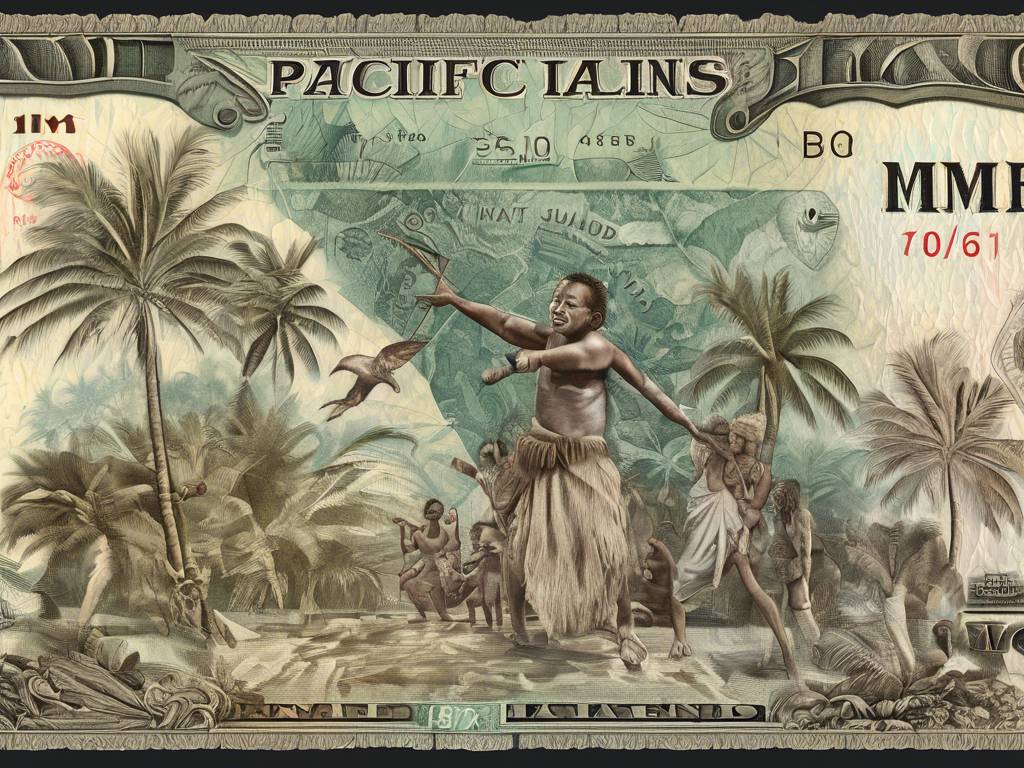Unlocking Financial Inclusion in the Pacific Island Nations with Digital Money 🏝️
Exploring the potential impact of digital money in the economies of Pacific Islands countries, the International Monetary Fund (IMF) highlighted the benefits it could bring to these remote and dispersed nations. The IMF suggested that digital money, including central bank digital currencies (CBDCs) and private stablecoins, could significantly enhance financial inclusion and improve the quality of financial services.
Digital Money Revolution: A Game Changer for Pacific Island Nations 🌊
To address the limited and unequal access to financial services in the Pacific Islands, the IMF believes that embracing the digital money revolution could lead to several advantages for these nations:
- Developing robust payment systems.
- Expanding financial inclusion.
- Mitigating the loss of correspondent banking relationships.
CBDCs vs. Private Stablecoins: The IMF’s Stance
While the IMF predominantly focuses on CBDCs, it also recognizes the potential of private stablecoins backed by foreign currencies. The IMF advises against smaller Pacific Island countries issuing their sovereign stablecoins due to limited oversight capacities but mentions Tether as a private stablecoin.
Two-Tier CBDC Model: A Proposed Solution
For Pacific Island countries with existing national currencies and mature banking systems, the IMF suggests a two-tier CBDC model. This model involves the central bank issuing the digital currency while private intermediaries handle its operation. On the other hand, countries without their currencies could consider foreign currency-based stablecoins with strict regulation and supervision.
Continued Advocacy for CBDCs by IMF 🌐
The IMF continues to advocate for the widespread adoption of CBDCs worldwide. Managing Director Kristalina Georgieva underscores the potential of CBDCs to replace cash and coexist with private money, providing a secure and cost-effective alternative.
Global Adoption of CBDCs: A Growing Trend
According to the Atlantic Council CBDC tracker, 130 countries, representing 98% of global GDP, are currently exploring CBDCs. Additionally, 19 G20 countries are in the advanced stage of CBDC development, with 11 countries having fully launched a CBDC, such as China, The Bahamas, Nigeria, and others.
US Stance on CBDCs: A Mixed Response
While many countries are embracing CBDCs, the United States has yet to confirm plans to launch a digital currency. However, the US is progressing on a wholesale CBDC (bank-to-bank). Some US lawmakers, including Florida Governor Ron DeSantis, have expressed privacy concerns and even banned CBDCs in their states.
Hot Take: The Future of Digital Money in the Pacific Islands 🚀
The IMF’s push for digital money in the Pacific Islands could revolutionize financial services, enhance financial inclusion, and boost economic growth in these nations. By embracing CBDCs and private stablecoins, Pacific Island countries have the opportunity to transform their economies and build a more stable financial future.





 By
By
 By
By


 By
By
 By
By